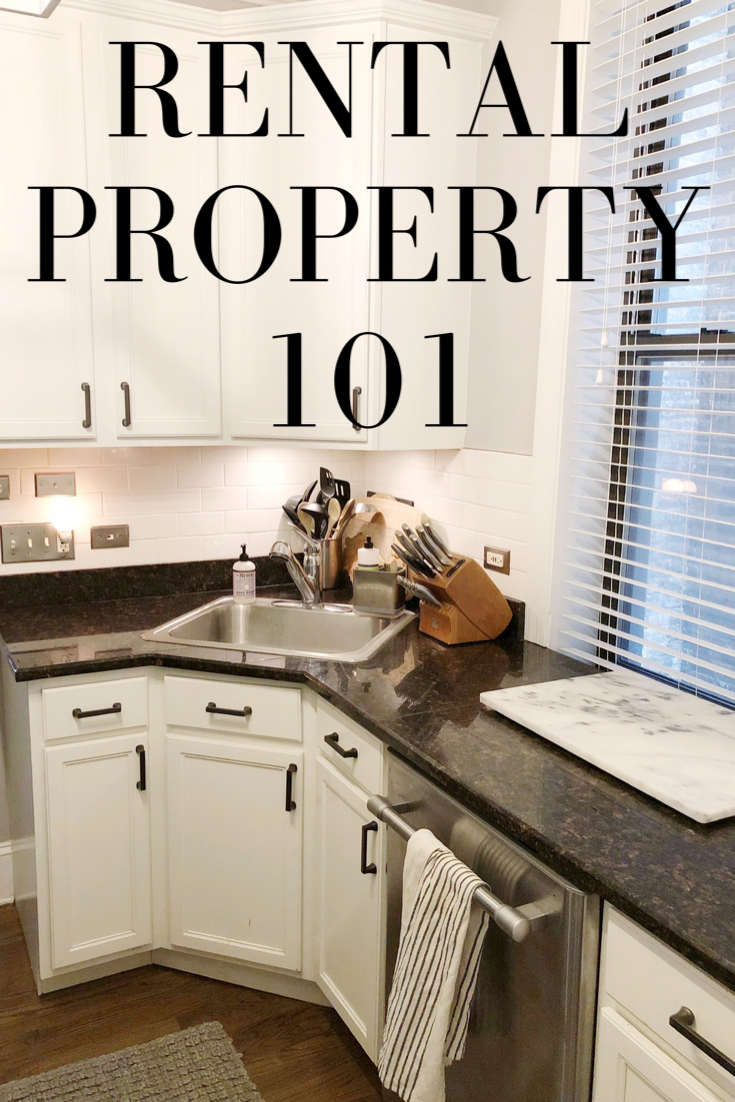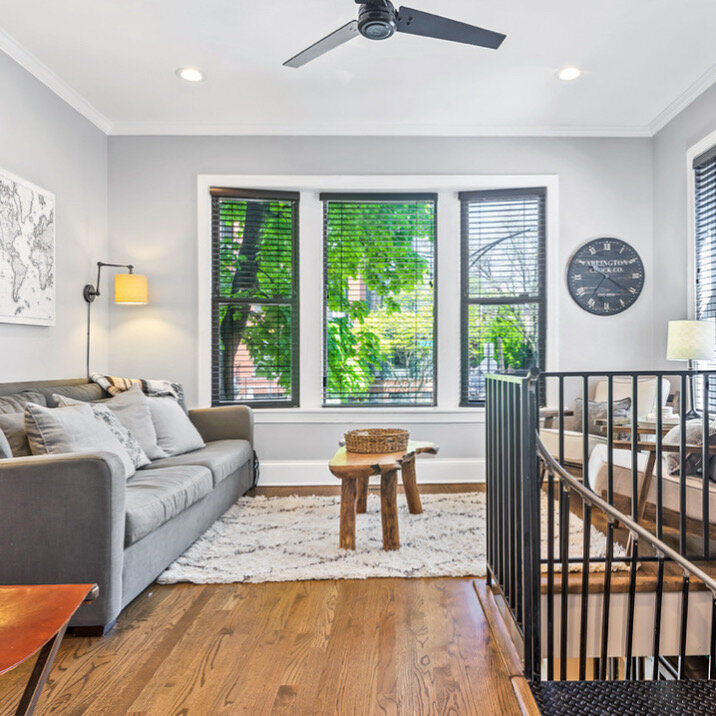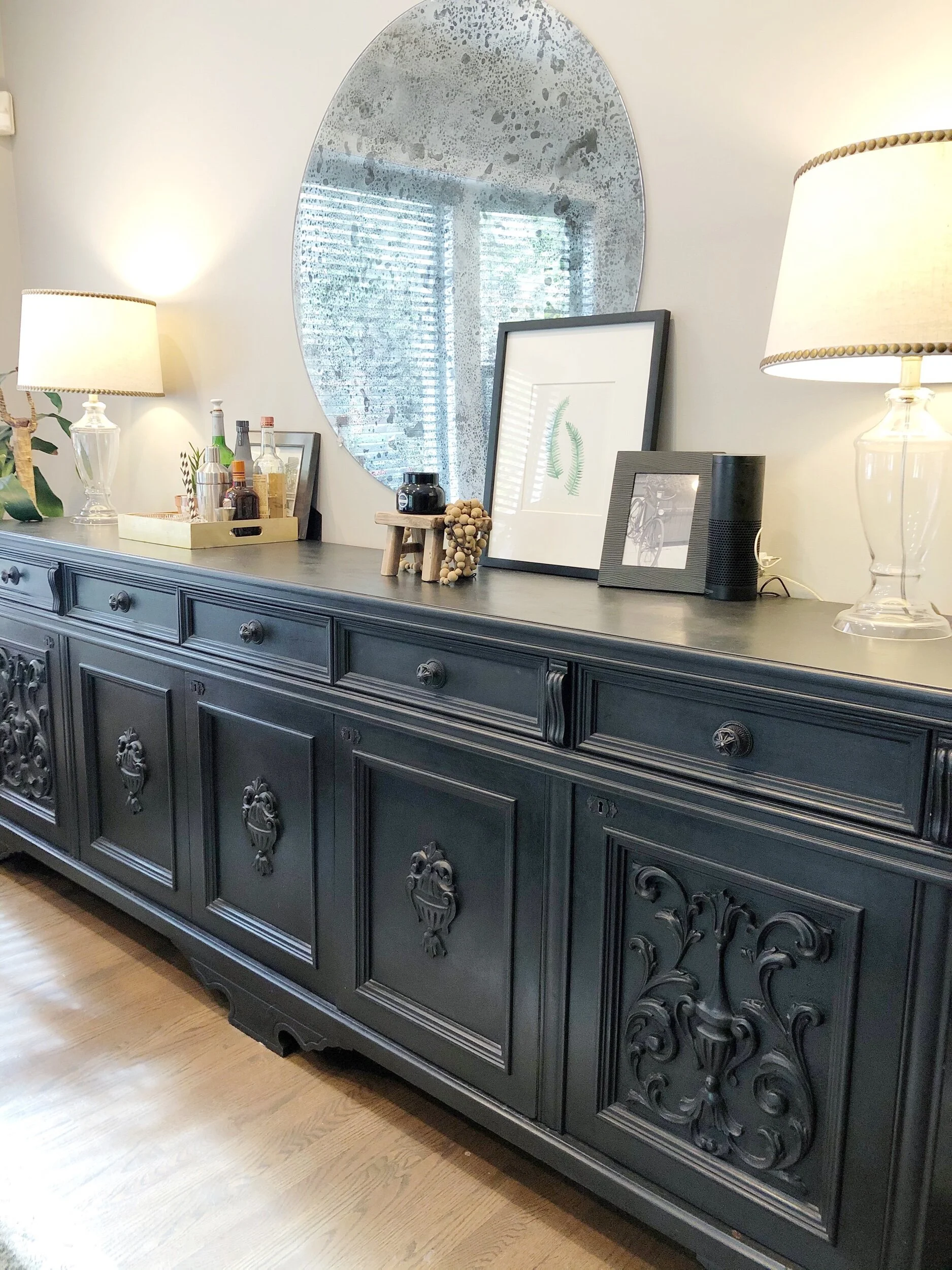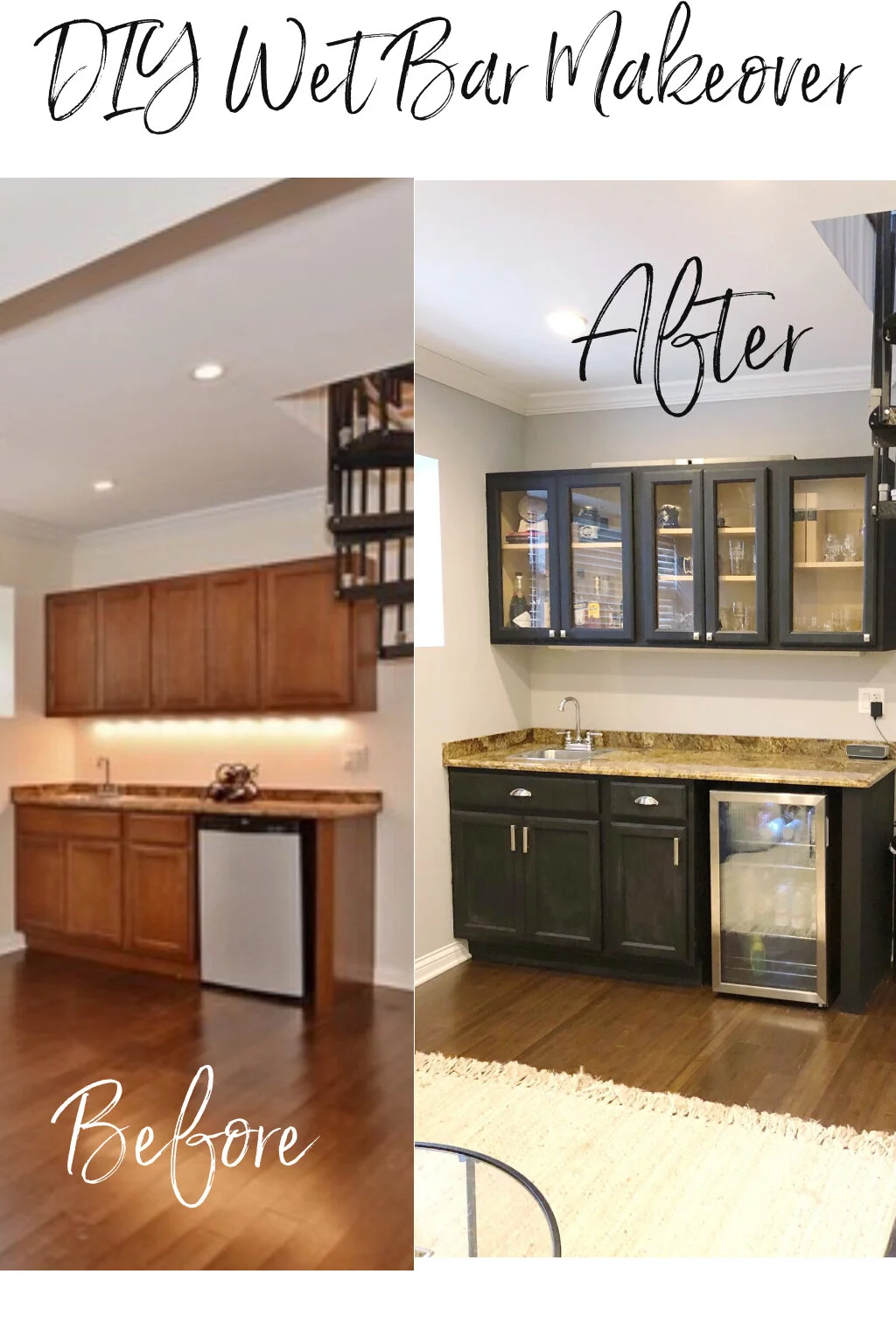Rental Property Checklist
So you want to buy a rental property? Or, you want to rent out your current home? We have owned one rental property for three years and we recently listed our primary condo for rent, as well! So now we will be managing two rental properties and a girl has got to stay organized! I’ll be sharing my lists and tips along the way. But let’s start with the basics.
There is a LOT that goes into renting a unit or home. I thought I’d share a list of what we do to prepare for listing our property and ultimately renting! Here we go…
OWNING A RENTAL PROPERTY
Before we get into the to-do list, I wanted to talk a bit about renting a unit and what it’s like to be landlords. This isn’t our first rental property. We bought another unit in our building - a 1 bed/1 bath - purely to rent out almost three years ago. Since then, we’ve really enjoyed owning a unit for rental income. We’ve had two tenants so far (one tenant stayed for one year and now a couple has been there for two years and counting). We like owning a rental unit so much that we decided to rent out our primary condo, as our family moves into a new home down the street.
A few things I would consider before buying a unit (or home) for pure rental income:
Do you know the area well? The worst thing to do is buy a place purely for rental income only to find out the neighborhood stinks or that particular street isn’t desirable. Do your research and make sure YOU would love to live there before you expect your tenants to love it. In the example of our first rental unit, we already lived in the building so we felt extremely comfortable making the investment. I mean, we know the neighbors ;)
Do you have enough savings in case the unit goes empty for a few weeks…or possibly months? This is a big one, as you don’t want the income property to sink you financially if you can’t get the thing rented! A good rule of thumb is to have 3 months savings on hand to cover rent and utilities in case the unit goes without a tenant. Obviously, if you are starting to have trouble renting the place, you may want to consider why (is it the price? is it the location? does the unit need updating?). If you choose the right combination of location and updated unit, you shouldn’t have much trouble renting it. For perspective, our unit has only been empty for 2 maybe 3 weeks total since we’ve owned it (knock on wood). Those weeks generally were between purchase and tenants moving in/out and allowed time for cleaning, painting, etc. As much as we’d like the unit to be rented 100% of the year, it is almost essential to have a few days unrented where you can go into the property, assess the condition, fix any major issues and then let the next tenant move in.
Do you have time to manage the property or money to hire a management company? Although managing a rental unit and being a landlord isn’t easy, it is definitely rewarding and cheaper than the alternative of hiring a company to do it. With that said, some people have jobs or family situations that really don’t allow for much flexibility to pop over to the unit and fix a leak or to manage the listing and application process of finding a tenant. Just like running any business, you have to be willing to wear a lot of hats when managing your property…or hire a professional!
PREPARING TO LIST
Once you decide to list your place for rent, whether you bought it specifically to rent or currently live in it, you’ll need to put some work into getting a good tenant in the door and ultimately - to sign the lease! This is what we did:
Research rental comps in your area to make sure you are pricing competitively
Decide which websites you want to use to list your rental: we used Domu and Zillow Rental
Determine a ceiling and floor for your rental price. Worst case scenario, your floor price would only cover mortgage + any monthly fees like HOA. Best case, your ceiling will give you at least $200 above that so you can start making money.
Determine a move in date. Give yourself enough time between when you list and when you want the tenants to move in. Example: if move-in date is July 1st, you’d ideally list 45-60 days ahead of that, giving tenants time to find your listing, tour the property, apply and then sign a lease! If you must list only 30 days prior, consider an aggressive price so the tenants can make a quick decision.
Decide if you’ll be charging any extra fees or asking for rent in advance. Some fees might include: a pet fee ($300), a cleaning fee ($200), a security deposit ($500). You can also choose to ask for first and last month’s rent in advance. These are all options that can protect you, the owner, if anything were to happen to the property. We typically ask for first month’s rent with the application and a $500 non refundable security deposit. The first month’s rent discourages backing out of the lease before move-in. And the security deposit is typically used on new paint, cleaning, and any other maintenance on the property before move-in and after move-out. We don’t look to make money on the fees, just cover costs of rotating tenants each year.
Invest in professional photos of the property. Even if you are an amateur photographer, paying for a professional makes a world of difference. I took photos of our place myself and included those in the initial listing. We had a professional come photograph the place a few days later and the pictures were SO much better! I’ve included the images below for you to see the difference. Also note, if you have the place styled really well, the pictures will last for years of renting it out! Versus the alternative of using pictures you might take later once the tenants move in, with their furniture…
Splurge for a video tour of the property. The video tour was an added bonus especially during Covid-19. Sometimes a video just tells a better story! Our realtor actually offered to come take the video and he simply used his iPhone!
Create a compelling write up for your place - Big bay windows? Recessed lighting? Skyline view? Use key words to drive attention to your listing. Most sites will only allow a short paragraph to describe your place, so make it good!
Download a rental application and be sure you are including any required amendments for your state. Domu offers a free downloadable form and helps ensure the proper equal housing disclosures are included. Download it here.
Get your facts straight: help future tenants understand specifics. Are any utilities included? What’s your pet policy? Is there parking? Make it really easy for your tenants to find answers to their questions. A note on pets: we originally had a hard no on pets because we didn’t want to manage the cleaning required after the people with pets move out. However, we slowly loosened up on that over time! We have a couple with a dog living in our first rental, but we did charge an additional pet fee to cover carpet cleaning once they move out. For our new rental unit, we have met in the middle said cats are OK.
Respond quickly to any questions or inquiries. Have room measurements on-hand and be willing to answer any questions quickly. If you don’t respond within 12-18 hours generally the tenants will move onto another property. My husband actually created a basic floor plan for our unit and has been sharing that with prospective tenants that reach out. It has been wildly helpful!
Offer in-person showings for tenants to view the property. If someone is interested, ask them to come see the property in person. This will really help sell the place! You’ll want to prepare your space for this by staging it, styling it, and cleaning it thoroughly. More on that in my next post! We did in-person showings during Covid-19 and asked folks to wear their face masks. Either my husband or I gave the tour while the other took our toddler on a walk outside.
Follow up with an invite to apply! The quicker you follow up the better chances they will apply. If the move in date and price are agreed upon, send over the application and start the review process.
Download a lease agreement - you can google this and find a few options. You’ll want to save signed copies of the lease with the agreed upon terms. Here is a site I found with free lease templates for each state, as the requirements are slightly different. Remember, nothing is official until you have the signed lease agreement.
My photo of the living room
Professional photo of the living room!
My photo of the bathroom
Professional photo of the bathroom!
PREPARING FOR TENANTS TO MOVE IN
Once you have a signed lease and security deposit - yay! - you can breathe easy that your unit is rented for the next year! A few things to keep in mind as you prepare for your tenants to move in:
Establish a rent schedule - what date do you expect rent to be in your bank account? We tend to use the rule that rent is due on the 1st of the month and cannot be received later than the 4th of the month, or we reserve the right to charge a late fee. Also, be flexible with how rent is paid. We accept all forms of money - Quickpay, Venmo, or Check. Don’t make it harder on everyone by expecting a check in the mail every month, that will only cause delays in my opinion!
Make copies of keys the tenants will need (door keys, mail keys, storage unit keys). Also, make sure YOU have a copy of the keys, as well, in case there were ever an emergency or reason for you to access the property. NOTE: You should never show up to the property unannounced and never let yourself in without discussing with the tenant first. This is a huge no-no. You want the tenants to feel they have privacy and showing up unannounced is just weird. We have heard horror stories of friends whose landlords would pop in whenever - not cool and potentially against the law? Just don’t.
Deep clean. I’ve rented many apartments in my day and it made a HUGE difference in my attitude towards the landlord when I moved into a clean, fresh smelling apartment. Spend the extra to have a professional clean it - this means deep cleaning carpets, bathrooms, wiping down fans, blinds and light fixtures - you won’t be sorry!
Patch any nail holes or scuffs on the walls and add fresh paint where necessary. For example, we currently use our coat closet as a place to store the kitty litter box. After four years of functioning this way, we plan to have the coat closet repainted so it will be good as new!
Perform routine maintenance now. Change light bulbs, check water pressure, replace air filters, check smoke detectors - do it all now! It’s better than receiving the phone call at 3am that the smoke detector is chirping. Trust me :)
Offer to do a walk through of the property when you hand over the keys. Showing the tenants how to work the thermostat, or which door tends to stick, will really alleviate questions down the line and make the tenants feel at home.
Transfer utilities. This is a big one! Let the utility companies know which date to transfer services. Give the new tenants a list of who to call for each service to set up payment and billing.
Share any building or neighborhood rules. Are the neighbors picky about their yard? Is there a noise ordinance past 11pm? Be up front about the rules to avoid any awkward situations down the line.
Consider leaving a move-in packet & gift inside the unit or on the porch. We like to include a list of our favorite restaurants, the closest grocery store, the list of utilities again, our contact information (again) - anything they could need in the first few days / weeks of moving in. I also like to include a bottle of wine or a gift certificate to our neighborhood restaurant - it goes a long way in making them feel welcome!
And finally, build a positive relationship! You’ll be interacting with these tenants for at least a year so be accommodating. If they ask for your help with something, offer assistance. If they mention they love the shelf in the living room, consider leaving it for them to use. You want to be viewed as a good landlord. Even when the tenants move out they may recommend your unit to their friends!
I hope this list helps! As I mentioned, we have loved our experience owning a rental unit - we loved is so much, we’re adding a second unit - eek! It’s exciting, a lot of work, but also very rewarding. Enjoy the process and reap the rewards of that extra income!
Happy renting
kelly











